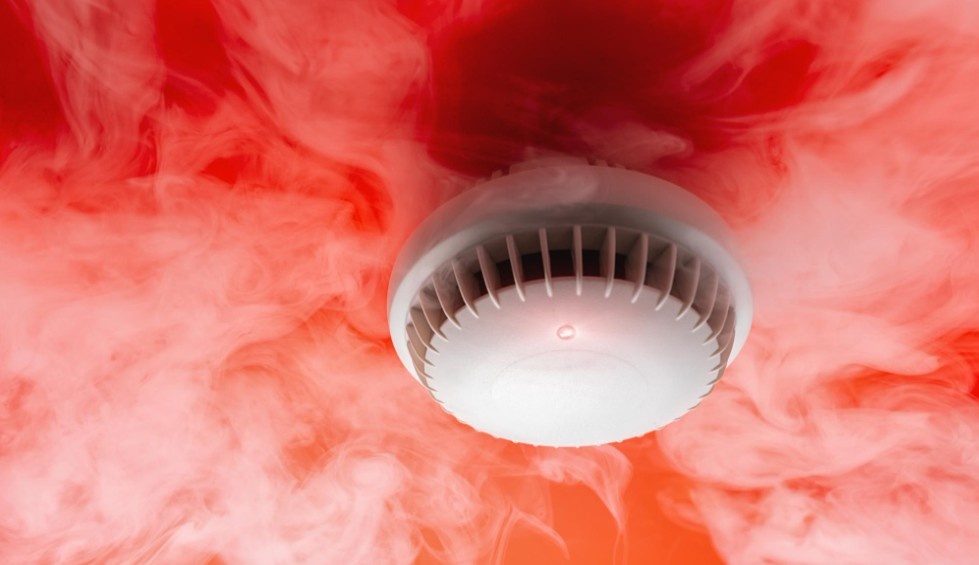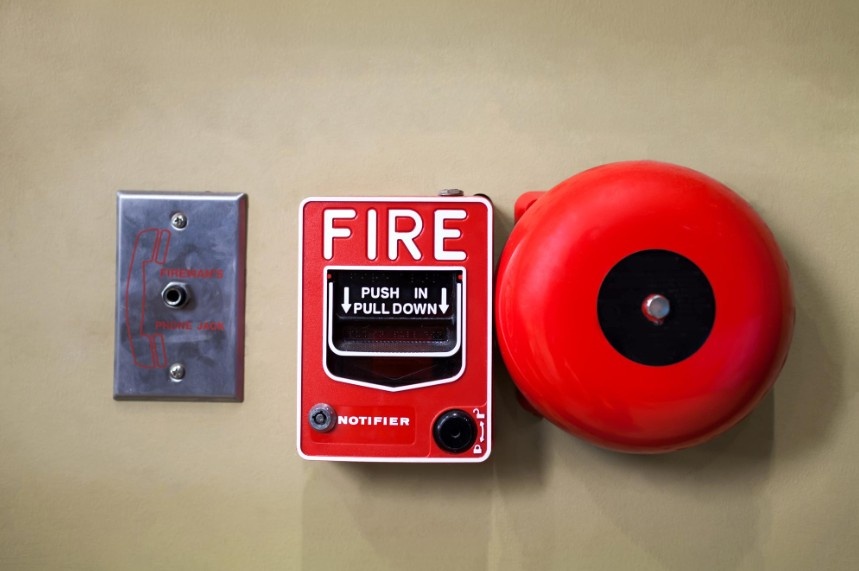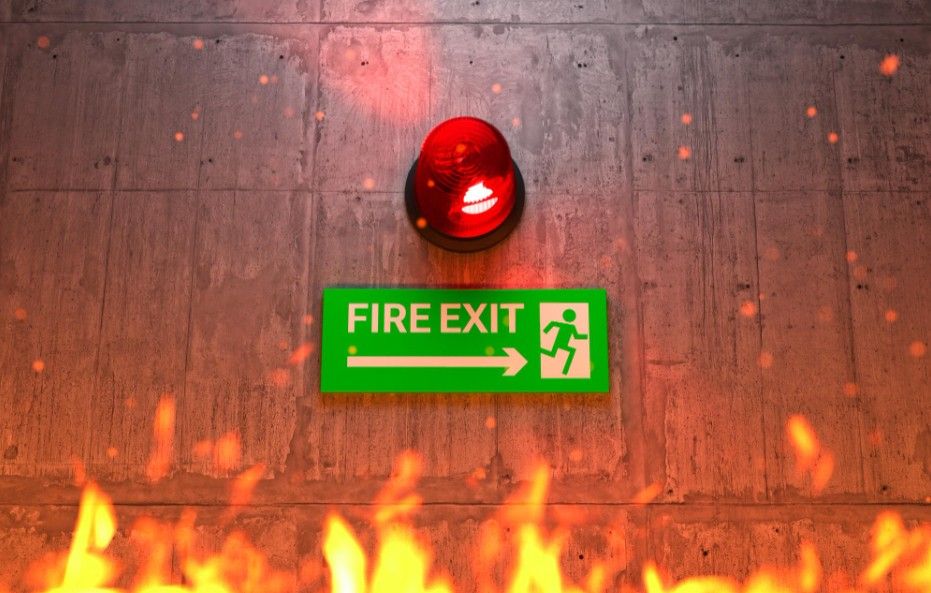I remember the first time I encountered a fire alarm that wouldn’t stop ringing. It was late at night, and I was just settling in to read when the piercing, shrill sound of the alarm interrupted my peaceful evening. The flashing lights and relentless noise filled the air, and I had no idea how to stop it. I was in panic mode, trying to remember every fire safety training session I had attended over the years.
There are a few simple steps to turning off a fire alarm, whether it’s a smoke detector or a carbon monoxide alarm. However, as anyone who has experienced a false alarm can tell you, knowing exactly how to handle the situation calmly can make all the difference.
If you’re standing in a similar situation and wondering how to turn off a fire alarm, this post will walk you through the proper steps to ensure safety and sanity. Let’s go ahead and break it down.
Why Do Fire Alarms Go Off?

What Causes a Fire Alarm to Ring?
A fire alarm can go off for several reasons, not all of which are directly related to actual fires. Let’s take a quick look at some of the most common causes for an alarm to sound:
- Smoke or Steam: The most obvious culprit. If smoke or steam is present in the air, it can trigger a smoke detector. If you’re cooking, showering, or even just having a campfire nearby the sensor, the smoke may trigger the alarm.
- Low Battery: Many fire alarms will emit a beeping sound when the battery is low. This warning is important because it tells you that your alarm might not be fully operational in the event of a fire.
- Malfunction: The alarm itself can sometimes malfunction due to dust, age, or electrical issues. This is less common but still a reason to pay attention.
- Carbon Monoxide Detection: In the case of carbon monoxide alarms, the trigger could be the presence of this colorless, odorless gas, which can be deadly if undetected. These alarms are different from smoke detectors and should never be ignored.
How Do You Know If It’s a False Alarm?
While you can’t always be sure right away whether an alarm is due to a real fire or a false alarm, some indicators can help:
- Short duration and intermittent beeping: If the alarm sounds in short bursts, it’s likely a low battery or a dust issue.
- Continuous loud sound: If the alarm is sounding continuously and you’ve checked the area and found no fire or smoke, you may have a false alarm on your hands.
How to Turn Off Fire Alarm in a Safe Manner

What’s the First Step in Turning Off the Fire Alarm?
If the alarm has gone off, first and foremost, ensure safety. Even if you suspect it’s a false alarm, it’s important to check the area around you and make sure there’s no smoke, heat, or fire. If there’s any sign of fire, evacuate the area immediately and call the fire department.
If you’re sure there’s no fire or hazardous situation, follow these steps to turn off the alarm:
1. Turn Off the Alarm’s Power Source
Most alarms will have a “test” or “reset” button that can help stop the beeping. Pressing this button often temporarily turns off the alarm. For hardwired alarms, you can typically find a power switch near the alarm’s base or the circuit breaker. If you have a battery-powered alarm, remove the battery to stop the sound.
2. Clear the Area of Smoke or Steam
If the alarm was triggered by smoke or steam, clear the area by moving the offending source of smoke away from the detector. Open windows, turn on fans, or use a cloth to direct the smoke outside. For steam from cooking, simply turn off the stove or appliance and allow the room to clear.
3. Reset the Alarm (if Necessary)
Some alarms might continue to beep even after the immediate cause is removed. In this case, you should reset the alarm. Most alarms have a reset button that you can press to silence it for good. If you’re unsure, check the manufacturer’s manual for specific instructions.
4. Replace the Battery or Address the Problem
If the alarm is still beeping after removing smoke or resetting, it could be a low battery or dust issue. Replace the battery and clean the sensor to ensure the alarm continues working properly.
FAQ: All Your Questions About Turning Off a Fire Alarm
1. How can I prevent my fire alarm from going off when I’m cooking?
Cooking can easily trigger a fire alarm, especially when cooking with high heat or frying. The best way to avoid this is to install smoke detectors away from kitchens or use heat detectors instead. Additionally, ensure that you use ventilation in the kitchen, such as a range hood or open windows, to clear any smoke or steam.
2. What should I do if my carbon monoxide alarm sounds?
If your carbon monoxide alarm goes off, do not ignore it. Immediately evacuate the building and call emergency services. Carbon monoxide is a serious risk and should not be taken lightly. Once safely outside, you can turn off any potential sources of carbon monoxide, such as a gas appliance or heater. However, never turn off the alarm until the authorities have cleared you.
3. Why does my fire alarm beep intermittently?
Intermittent beeping often means that the alarm has a low battery or needs maintenance. Check the battery and replace it if necessary. If the problem persists, clean the alarm and ensure no dust or debris is blocking the sensor.
4. Can I silence the fire alarm without completely turning it off?
Yes, many fire alarms have a silence or hush feature. This will stop the alarm temporarily without turning it off completely, giving you time to clear the smoke or other causes. However, if the alarm continues to sound, you should investigate further to ensure it’s not a serious issue.
Keeping Calm and Safe: Your Guide to Handling Fire Alarms Like a Pro
No one enjoys dealing with a blaring fire alarm, but it’s a reality we all face from time to time. Whether it’s caused by cooking smoke or a malfunctioning sensor or welding fumes, knowing how to turn off the fire alarm correctly can save you from unnecessary panic and help you maintain control in the situation.
Remember, your first priority should always be safety. If there’s any doubt that the alarm is signaling an actual emergency, evacuate immediately and contact the authorities. But if it’s a false alarm, take the necessary steps to reset, address any issues, and ensure that your fire alarm system is in good working order.
Now that you know the steps, you can confidently face the next fire alarm with a calm, collected approach. Stay safe, stay prepared, and don’t let that beeping ruin your day!




